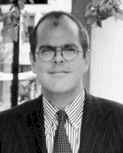

"Americans do
not love liberty...."
 |
FØRSTE KVARTAL 2003: 10.marts |
|
7:9
Photo Credit: US Fish and Wildlife Service
|
The Lively Media
HB: Another thing that strikes me as a foreigner coming over is the quality of the political debate – the positions taken, the caliber of the political magazines and TV-shows is very often higher than the best Europe can offer, with the exception of the Economist, maybe.
CC: I would only be guessing. I rejoice in our lively media, I love it. But it is also easier to have this in a country that hasn’t felt the consequences of a too lively debate over ideas. Calling somebody a fascistic menace to society is much easier in the United States than in Germany. But you also have to know where to look for it. If you are in Washington or New York, and you read the New Republic or the Weekly Standard or the Nation or the American spectator, or the American Conservative, then it does look like a lively debate. But the subscription numbers of these magazines are incredibly small – our circulation is something like 60 something thousand. True, it is magnified by the fact that many of us appear on TV. But the United States is 50 times the size of Denmark – that means the equivalent magazine would have a circulation of 1200. That’s not very big. The number of people who are touched by this in society is miniscule. That may lead us to a discussion of the role of elites. Then we can say, well, politics is always just an elite metropolitan thing and given that the debate is livelier here. I think that is true.
HB: The use of for example negative TV-ads in election campaign is a very dramatic tool that we do not see in Europe. Is the tone of American politics harsher?
CC: I don’t know: on the one hand yes, our campaigns are negative. On the other hand, ten days before the German election when Schröder and Stoiber were speaking before the Bundestag, and Schröder said: “There is such a thing as readiness to be Chancellor, and look at this man! He is not ready, he lacks the strength; he lacks the power to be a Chancellor!” That kind of abuse on the chamber of your representative body: that wouldn’t happen. I think there is a certain ferocity in campaigns, too. I was at a Le Pen election speech where he brought an effigy of Catherine Trautmann’s head out on a plate – I mean, you wouldn’t see that either. The reason why people use negative TV-ads is because they work, it is just a fact of social science. It has got no philosophical basis or anything.
HB: Recently, a cartoon in the New Yorker had a map of the States with only New York and LA pointed out – and the rest was marked “fly over zone”. Funny as it was, this was also an expression of a tendency we also have in Europe with the political elites and the EU-question, where you have a metropolitan, often leftwing elite, which does not acknowledge the validity of the rest of the country?
CC: In a complex modern society the range of things about which you are permitted to choose seems to shrink and shrink and shrink. This happens in different ways in the United States and Europe – but the points of view of those who live “out there” become less and less relevant. The crown jewel of the American constitutional system, the separation of powers between the states and the federal government, is really increasingly a fiction.
There was a book which was widely read in Europe, “Democracy in Europe” by Larry Siedentop, an American born Oxford-professor. He talks about the different possible constitutional models for Europe and he compares the British, French and German models. Now, he is an American who hasn’t lived here for 40 years and he winds up recommending the American constitution for its balance between local states and national governments. But the country he’s describing has been dead for 50 years.

foto: Weekly Standard